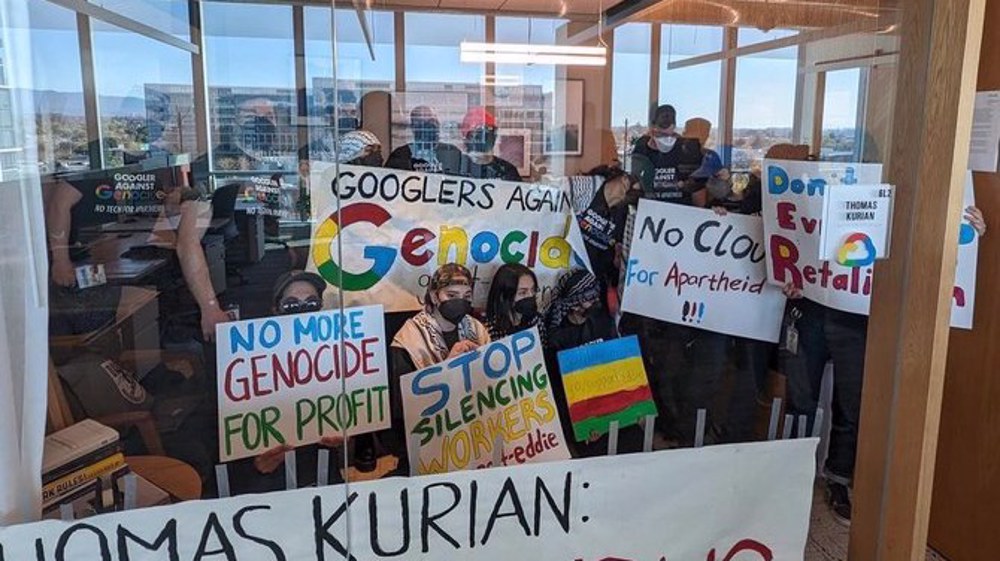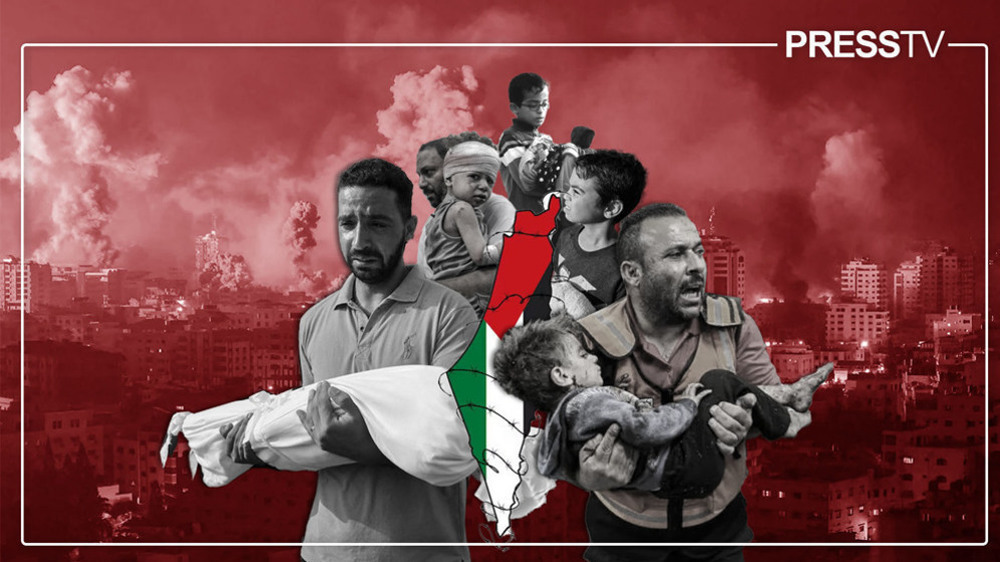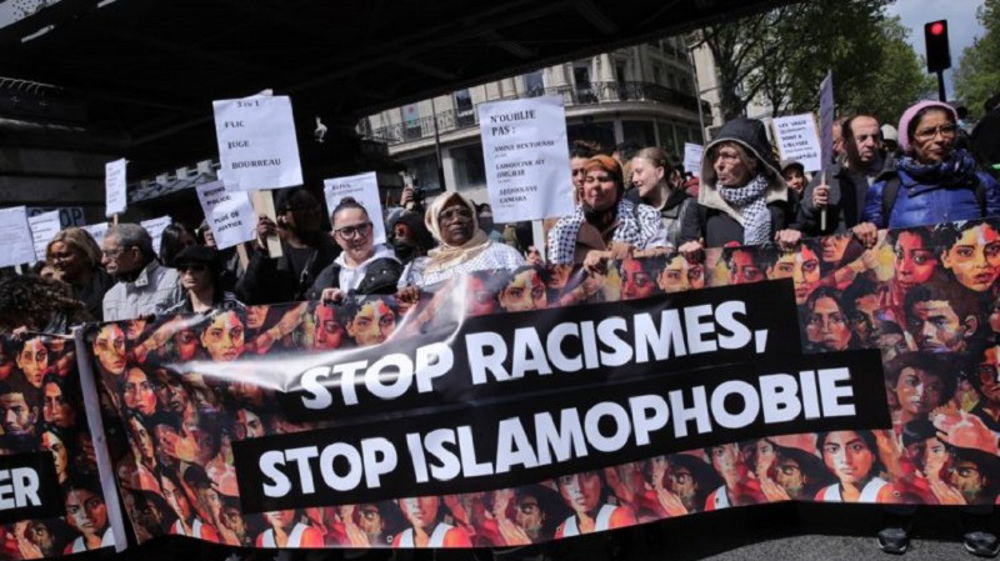Palestinians shut down shops in support of hunger strikers in Israeli jails
Palestinians have staged a general strike across Israeli-occupied territories in solidarity with Palestinian leader Marwan Barghouti and hundreds of other prisoners in Israeli jails on hunger strike for several days.
On Thursday, almost all businesses and schools remained closed, and public transport stayed off the streets in all cities across the occupied West Bank.
Palestinian bus services were also on strike in east Jerusalem al-Quds. Only doctors and students nearing graduation were excluded.
Khalil Rizeq of the Union of Palestinian Chambers of Commerce described the strike as the largest in years.
"This general strike is unprecedented in years," Rizeq said, adding, "All Palestinian industries, such as transport, bakeries, stores, all of the private sector and commercial institutions are participating."

In the city of Ramallah, a large number of protesters gathered at a tent set up at the Yasser Arafat Square to march through the streets of the West Bank city to express their solidarity with the inmates and praise their strike.
Oday Homaid, a 27-year-old engineer, who attended the protest march with other workers from his lift maintenance company, said that it was the "minimum that we can do for our prisoners."
Munther Karaja, a 42-year-old who had closed his pastry shop, said: "We can sacrifice one day for prisoners who have given years of their lives."
Latest reports indicate a series of violent have erupted between Israeli forces and Palestinian protesters supporting hunger strikers in different cities across the West Bank.
The Israeli forces fired teargas at protesters in the city of al-Khalil as well as in the town of al-Eizariya in occupied Jerusalem al-Quds.

At least two people suffered from suffocation while one was also injured by rubber bullets.
Since April 17, over 1,500 Palestinian prisoners have gone on a mass hunger strike, initially called for by Barghouti, in protest at the conditions of Israeli prisons.
The head of the Palestinian Committee of Prisoners’ Affairs, Issa Qaraqe, announced on Monday that Barghouti's health conditions had been critically deteriorating during the past week.
Read more:
Israeli prisons hold some 7,000 Palestinians, including 300 minors. Some of the inmates are held under Tel Aviv’s policy of administrative detention, which enables confinement without charge.
Palestinian inmates regularly stage hunger strikes in protest at the administrative detention policy and their harsh prison conditions.
Palestinian leaders have strongly censured Israel's refusal to negotiate with the hunger strikers, warning of a "new intifada" if any of them dies.
Google fires more employees over anti-Israel protests
Iran set to build more nuclear power plants: AEOI chief
'Iran’s True Promise ushers in new era for region; strategic implications felt across globe'
VIDEO | Arrest and harassment: US intensifies crackdown on pro-Gaza protests in universities
VIDEO | Press TV's news headlines
France fails to ban anti-Islamophobia protests
In Numbers: 200 days of Israeli genocidal war against Palestinians in Gaza
Death toll mounts in Gaza as Israeli genocidal war marks 200 days










 This makes it easy to access the Press TV website
This makes it easy to access the Press TV website